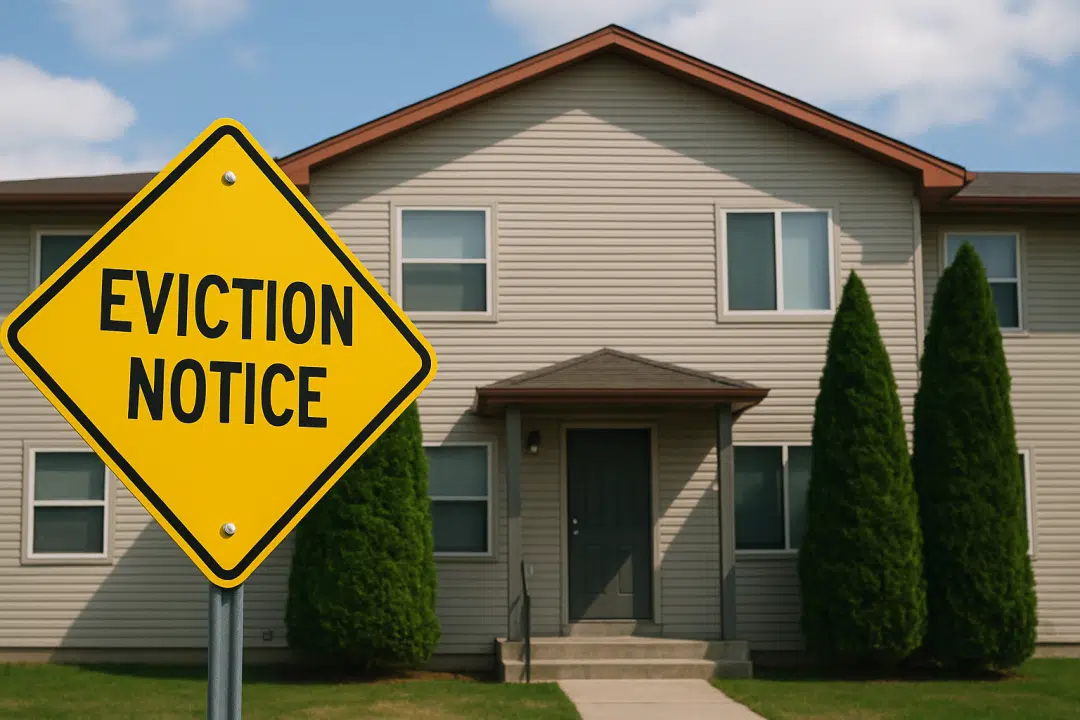
A sweeping new proposal from President Donald Trump would place strict time limits on public housing access for so-called “able-bodied” adults and slash funding for rental assistance programs like Section 8—triggering a wave of potential evictions.
According to internal analysis by the New York City Housing Authority, the policy could disqualify over 300,000 residents—61% of the city’s current public housing population—from support.
What Trump’s HUD plan proposes
- 43% cut to all federal rental assistance, including Section 8 vouchers
- Two-year cap on public housing for “able-bodied” adults
- Vague criteria for defining “able-bodied” status
- No clear path for exemption or appeal
The changes come as part of Trump’s 2025 federal budget proposal and would represent the largest rollback of housing support in modern history.
RELATED: Trump reportedly skeptical of Elon Musk’s cost-cutting claims as DOGE falls short
“Able-bodied” time limits spark backlash
Trump’s housing proposal uses the phrase “able-bodied adults” to justify cutting off aid after just two years. But housing advocates and lawmakers say that vague wording could unfairly penalize vulnerable people—including those with undiagnosed disabilities, caregiving responsibilities, or unstable work situations.
Rep. Ritchie Torres (D-NY) warned the policy would “radically restrict rental assistance for the most vulnerable households” and could trigger:
- Widespread evictions
- Longer housing court backlogs
- Nonpayment crises
- Loan defaults across the multifamily housing market
What it means for HUD and Section 8
The proposed HUD cuts would gut key programs:
- Section 8 Vouchers – Families use these to pay private landlords, but reduced funding means fewer vouchers issued and longer waitlists.
- Public Housing – Agencies like NYCHA rely on federal subsidies to operate. Losing support could shutter buildings or reduce services.
- Nonprofits & Landlords – Many groups depend on federal funding to keep rents affordable. The cuts threaten both tenants and the financial ecosystem behind low-income housing.
Legal challenges ahead?
Experts predict the proposal would face swift legal opposition if enacted, especially from cities like New York that operate under long-established public housing rules.
Housing policy attorneys say a blanket two-year cap could conflict with the Fair Housing Act, disability protections, and even tenant contracts that span longer durations.
Bigger picture: The Trump housing agenda
This is not the first time the Trump administration has clashed with HUD and local housing leaders:
- April 2025: Announced plan to phase out housing vouchers entirely within 5 years
- March 2025: $5 billion rental assistance fund declared empty by HUD
- Ongoing: Multiple affordable housing programs blocked, unblocked, then blocked again in courts
The Trump budget also shifts housing funding toward military infrastructure and tax relief programs, raising concerns about priorities.
What happens next?
Trump’s proposal is still working its way through Congress, but housing advocates are urging swift opposition. If passed, the changes could take effect in early 2026.
Until then, local housing authorities are bracing for uncertainty—and tenants are left in limbo.

